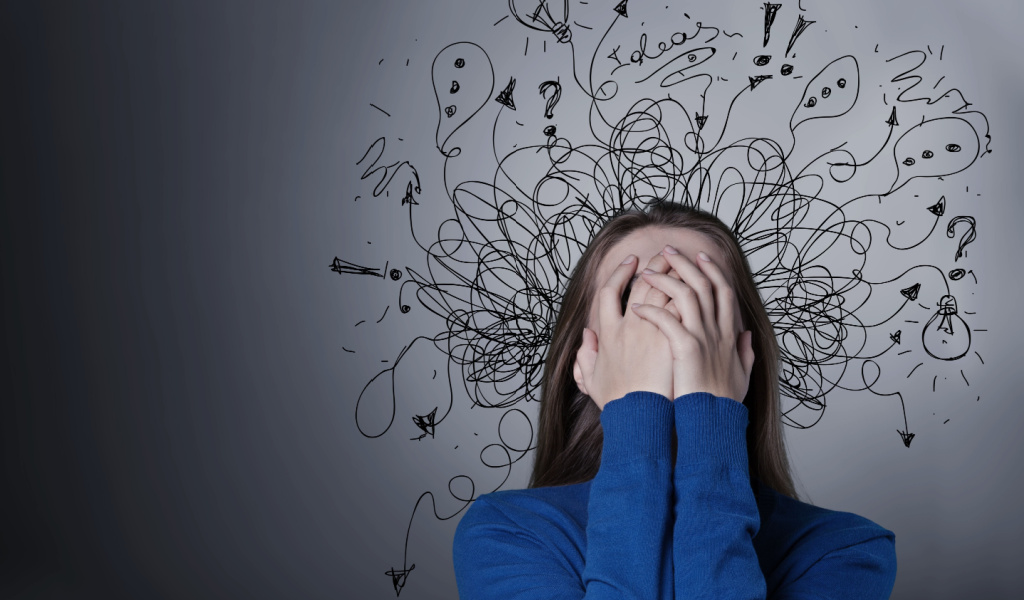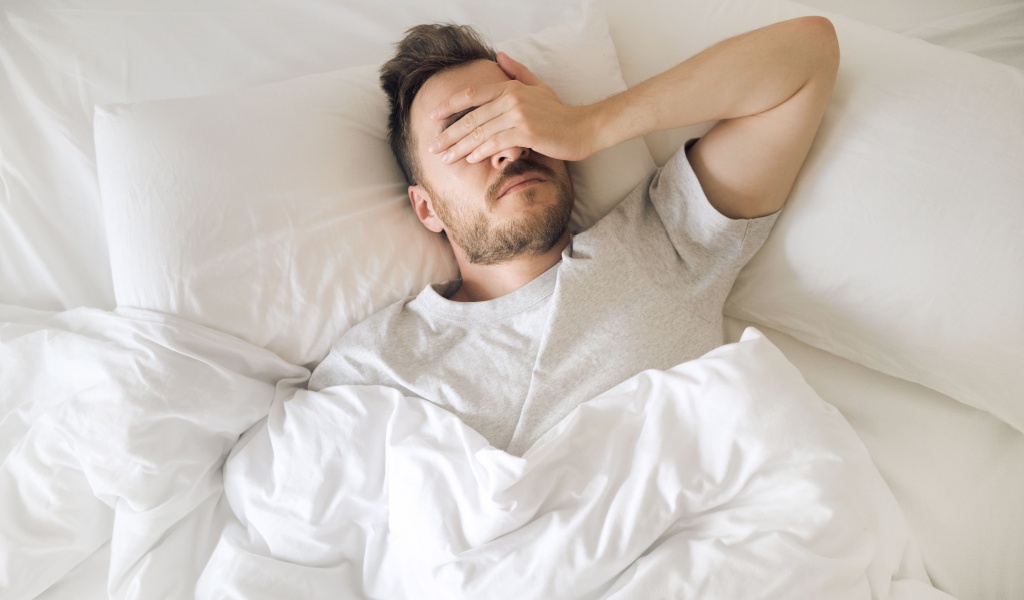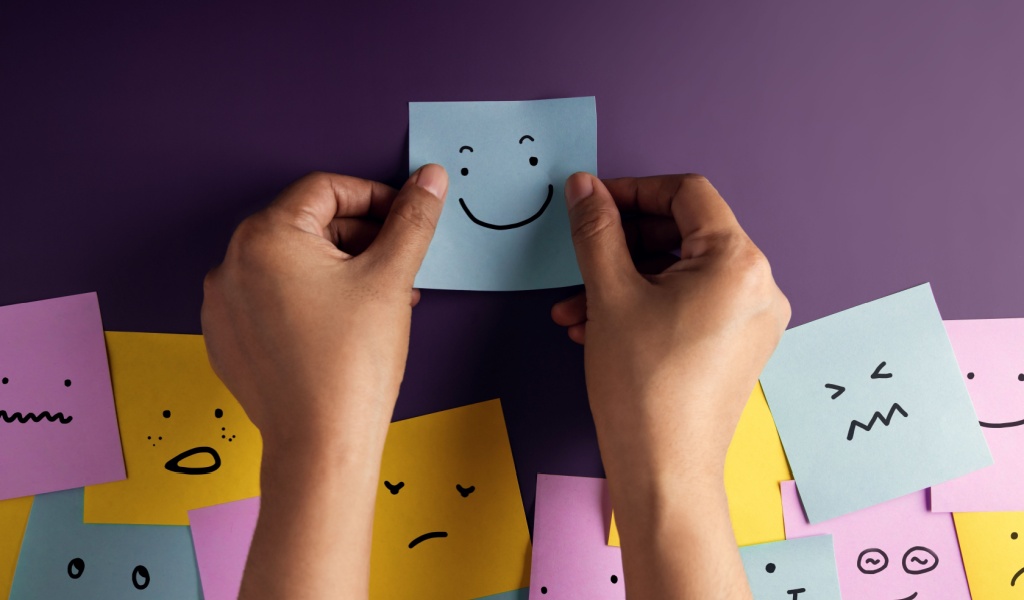Anxiety is an overwhelming sense of uneasiness, which includes worry or fear. Anxiety disorders can range from minor to severe, and every human is likely to experience symptoms of anxiety at one time or another. Changing an individual’s lifestyle is necessary to cope with anxiety effectively.

What Is Anxiety?
According to the National Institute of Mental Health, anxiety can develop into a severe condition for 31% of Americans at any particular point in their lives. Women are nearly twice as likely to experience anxiety compared to men. Most individuals would readily agree to being overworked, under pressure, burned out, and tired. Still, the good news is that a few changes in our lifestyle could make you feel considerably better.
An increasing amount of research believes that your gut works as a bodyguard for the rest of your immunological and neurological systems by influencing pathways, which could lead to affecting your mental health and anxiety symptoms. A healthy diet can boost the natural capacities of your GI system. Along with other lifestyle changes and proper therapies and treatments prescribed by your care provider, this can significantly impact your mood.
Common Symptoms of Anxiety
Feeling anxious occasionally is common. However, people who suffer from anxiety disorders feel fear regularly and disproportionately. Feeling panic in ordinary circumstances can be worrisome because it can hinder your day-to-day life. If such feelings stop you from performing daily tasks and affect your quality of life, they could be unhealthy. The following are a few of the common symptoms of anxiety.
- Feelings of anxiousness.
- Elevated heart rate.
- Feelings of powerlessness.
- Persistent feelings of forthcoming terror, danger, or doom.
- Overthinking about things that make you panic.
- Sweating excessively.
11 Tips for Anxiety Management
Communication
There’s no doubt that getting things off your chest could make you feel lighter. Communicating about your anxieties with a trustworthy person can make you feel better. It could give you a sense of relief if someone pays attention to your concerns and validates your feelings. It is advisable to reach out to helplines if you are hesitant about opening up to someone close to you.
Try to Address Your Concerns
It is very challenging to get over anxiety. You might experience uncontrollable fears; however, different approaches can help manage this. It doesn’t help anyone to dismiss your thoughts or label yourself as irrational. Give your worries a place – you could write them down in a journal – so that they don’t take over you entirely!

Pay Attention to Your Physical Health
Scientific research has found that regular exercise can help to lessen anxiety. Therefore, it’s best to schedule at least 2-3 sessions of exercise a week, or you can try to be more physically active by doing labor-intensive household chores, walking more often, etc. Similarly, meditating or breathing exercises can be highly beneficial.
Get Enough Sleep
Sleep is also linked to several mental health issues, anxiety being one of them. Ensure to get enough rest, as it dramatically helps to deal with difficult emotions and situations!
Peer Support
Peer support helps in bringing individuals who have shared similar experiences together. This is a great way to get help and understand how to address your concerns. Numerous individuals feel that communicating their anxieties leads them to discover how to maintain a healthy lifestyle, connect with others, and feel less lonely.
Consume A Protein-Rich Breakfast
It is essential to have a protein-rich breakfast. This can help you feel fuller for a more extended period and helps in maintaining steady blood sugar levels, giving you more stamina to work throughout the day.
Consume Complex Carbs
Serotonin has a soothing effect on your body, and carbohydrates are believed to help produce more significant quantities of the hormone. Ensure to include whole grains that are packed with complex carbs, such as oats, quinoa, and whole-grain bread and cereals. It is better to avoid simple carbs that are typically found in sugary foods and beverages.
Stay Hydrated
Your state of mind can be affected by even minor dehydration. Thus, ensure to increase your water intake. Moreover, limit or refrain from taking alcohol. Undoubtedly, alcohol has an instant soothing effect. However, eventually, alcohol could make you anxious as your body absorbs it and makes it harder to fall asleep.
Avoid or Limit the Caffeine Consumption
It is advisable to consume caffeine in moderation, or perhaps not at all. Avoiding beverages containing caffeine is always better, as they can disrupt your sleeping patterns and make you uncomfortable and anxious.
Be Mindful of Food Allergies
Some people have allergic reactions to certain foods or dietary additives. These bodily responses could trigger mood swings such as anxiety or discomfort.
Follow a Balanced and Healthful Diet
A healthy meal plays a vital role in a person’s physical and mental health. Ensure to consume a lot of fresh fruits and vegetables, whole grains, and proteins. For example, you can include fish rich in omega-3 fatty acids, such as salmon, in your meals to benefit your body and mind!



